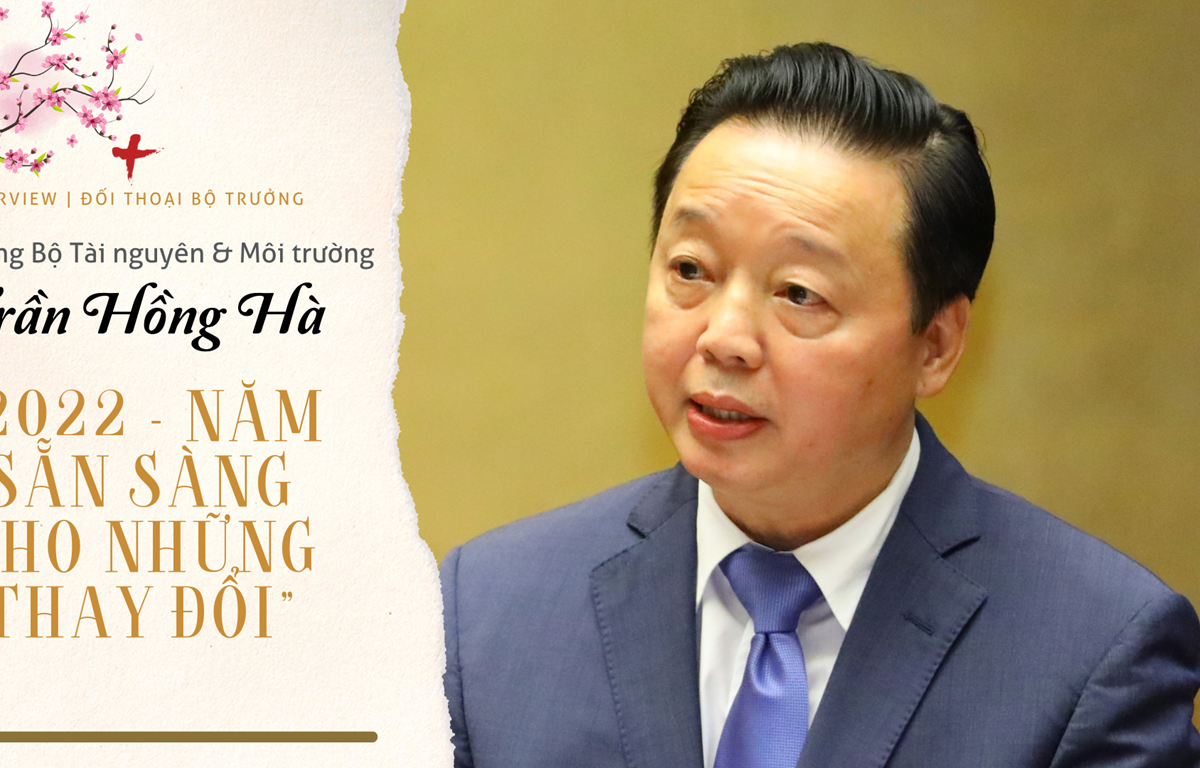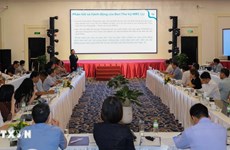2022 – Year of changes for environment sector

Hanoi (VNA) – 2022 will be a year “ready for changes” for the natural resources and environment sector, with a focus on completing institutions and policies to give effective advice to relevant Party and State agencies on issues relating to land, environment, mining and water resources.
Minister of Natural Resources and Environment Tran Hong Ha told Vietnamplus that this year, the sector will promote the development of circular economy in Vietnam and pioneer in building digital resources through geographic, environmental monitoring and remote sensing data.
In particular, this year, the sector will make all efforts to amend the Land Law - a code that has direct and vital influence on every citizen, and is expected to be discussed by the National Assembly in May 2022.
“First of all, we will focus on perfecting institutions, firstly completing a report reviewing Resolution No. 19 on land to submit to the Party Central Committee for issuing a new Resolution,” he said. The ministry will summarize the implementation of Resolution No. 24 on strengthening natural resources management, environmental protection and proactive climate change response; devise and submit to the National Assembly the draft Land Law (amended); and build the revised Law on Natural Resources.
In addition to the management and economical and efficient use of finite natural resources, the natural resources and environment sector will continue to build and create digital resources from big data about land, geographical information, monitoring, remote sensing and climate data.
It will implement the National Land Use Planning for the 2021-2030 period, with a vision to 2050; focus on reviewing the waste of land and the use of land originating from agricultural farms and plantations, projects with problems after inspection, examination and audit; set up inter-sectoral working groups of central and local governments to handle land-related problems and put the land funds into effective use, as well as free up resources for economic development.
“We will also focus on effectively implementing the Law on Environmental Protection, stopping and gradually reversing the trend of degradation in the environment and ecosystems; attract social resources for waste treatment under the waste-to-electricity model; strengthen international cooperation, especially diplomacy on climate and environment, sharing and exploitation of transboundary water and marine resources; enhance the application of advanced science and technology in the management and use of natural resources and environment,” said the minister.
Ha said last year, despite heavy impacts of COVID-19 pandemic and natural disasters, the sector took flexible measures with the highest determination to realise three important objectives. They are effectively controlling the pandemic; reviewing mechanisms and policies to remove difficulties for enterprises and people to maintain production activities; and building foundations for a decade of sustainable development and promoting potential in resources, contributing to the growth based on ecosystems.
The Ministry of Natural Resources and Environment focused on reforming administrative procedures, turning challenges into opportunities through digital transformation; step by step established digital resource foundations to develop the digital economy with a database of geographic information; digitized the land databases of 216 district-level units, with 8.63 million electronic cadastral records, and cadastral information of 42,984 land plots.
In addition, environmental and climate issues have been always given the highest priority in the country's development plans with the goal of protecting people's health and biodiversity, and ensuring the quality of the living environment; building a green, circular and environmentally friendly economy.
At the 2021 UN Climate Change Conference (COP26), Prime Minister Pham Minh Chinh announced Vietnam’s strong commitment to tackling climate change and transitioning to clean energy, opening up more opportunities for the country to gain broader access to knowledge, technology and financing. Vietnam pledged to achieve net-zero emissions by 2050 and reduce methane emissions by 30 percent by 2030./.













